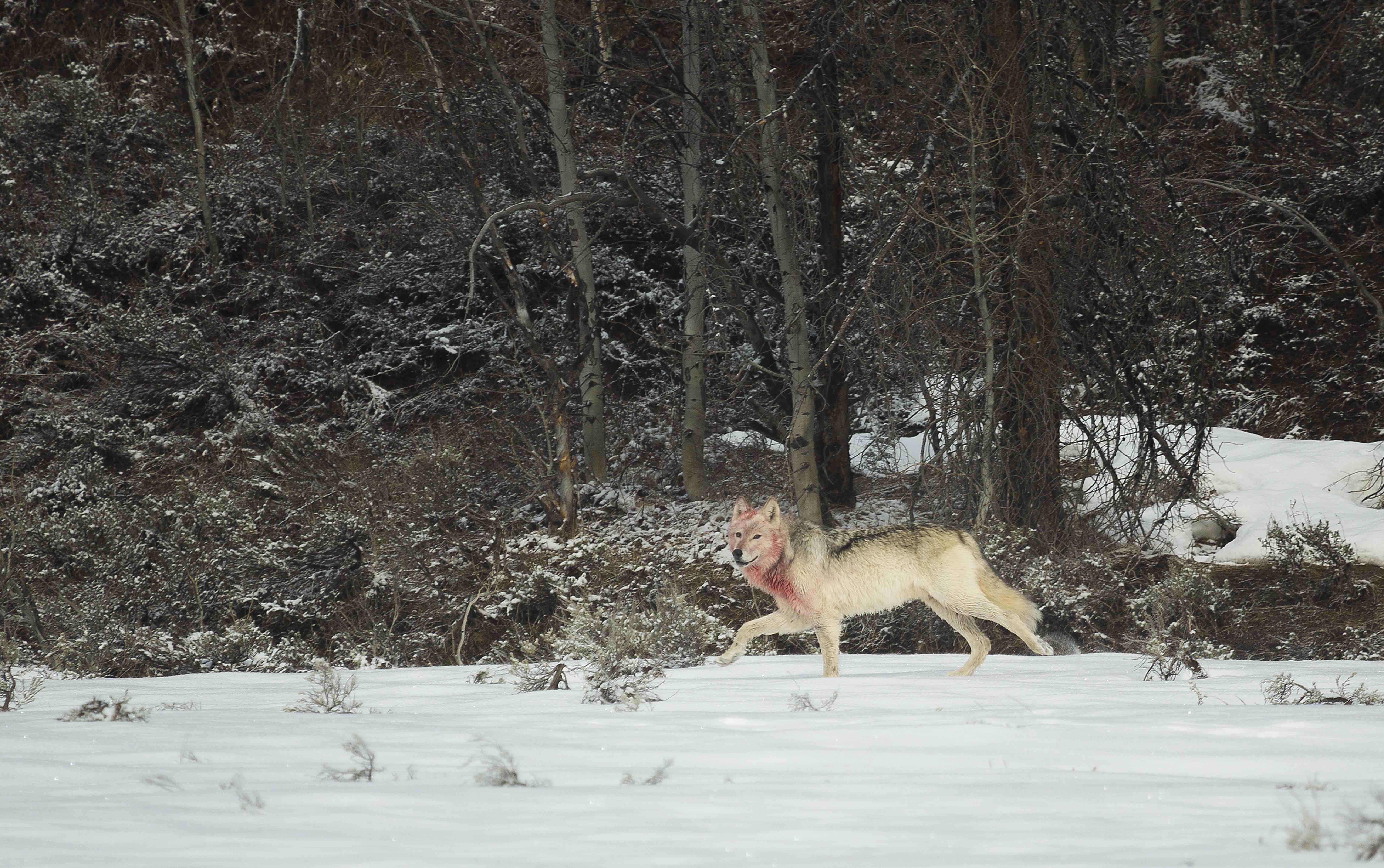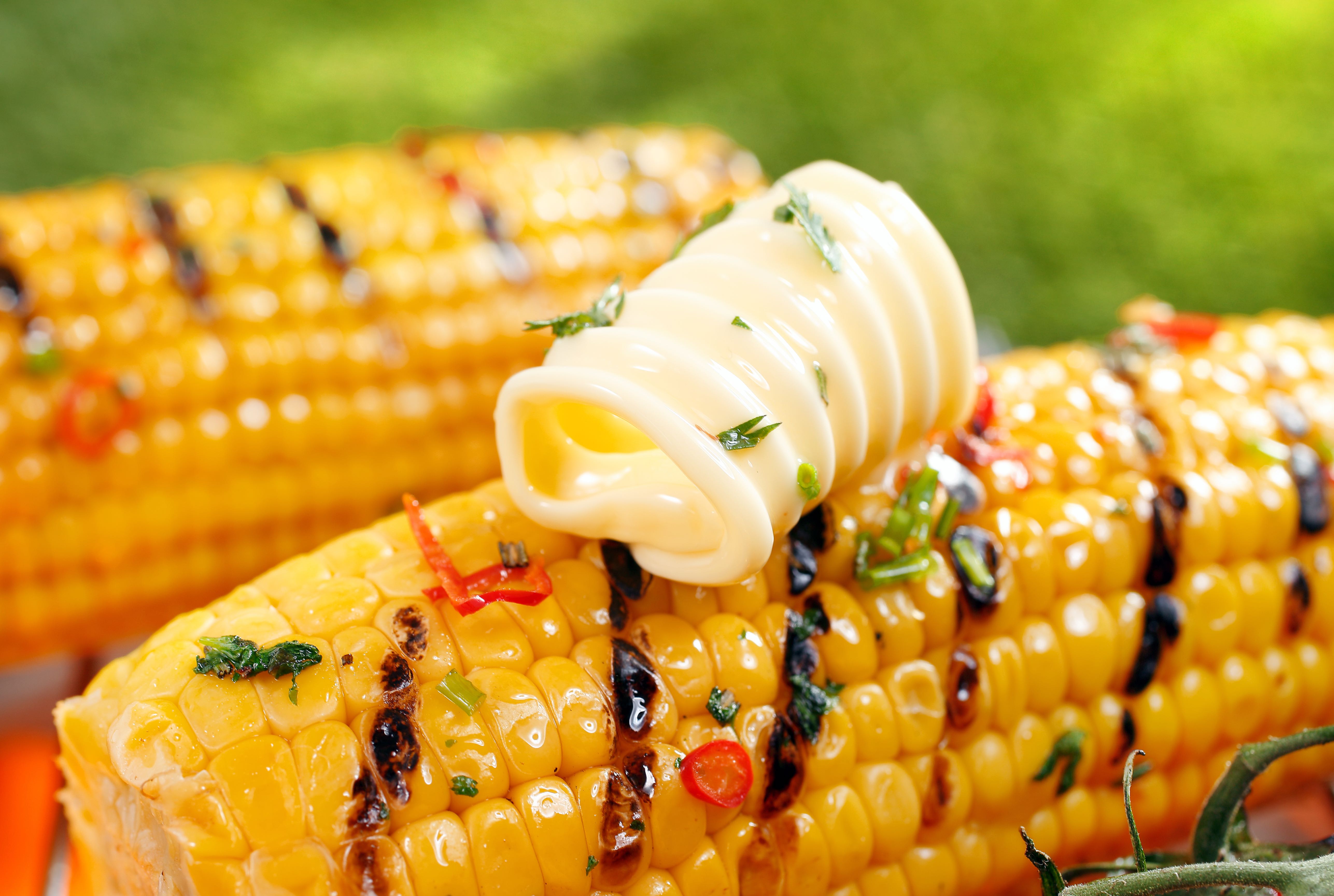
Arts & Culture
Confronting the feel, smell and taste of blood

A pilot research project provides a tantalising hint that the scent of blood may enhance our appetite for food...even vegetables
Published 11 June 2018
As the public filed through the Science Gallery Melbourne’s exhibition Blood – Attract and Repel last year, 64 intrepid types agreed to be part of a scientific experiment. Unknown to the participants, the research students accosting people at the door were attempting to find out how blood thirsty we really are.
And it turns out that we may very well like a bit of blood with dinner.

While the results of the experiment are no more than suggestive, generally people found images of prepared food more appetising after they had smelt the scent of blood compared with those who had only been given a whiff of water.
And while the association was strongest for meat dishes, even vegetables were more appetising when blood was in the air.
“The appetising effect of blood is really intriguing and definitely worth following up,” says Will Turner, PhD candidate at the University of Melbourne’s School of Psychological Sciences who led the research team of eleven students.

Arts & Culture
Confronting the feel, smell and taste of blood
“It was mainly a training exercise for us and a chance to engage people in how science is done. I didn’t really expect to get anything much, to be honest, given the small numbers, but while the results can only reveal interesting trends because of that, they do hint at something going on that we may find better evidence for if we can do a more exhaustive study.”
Mr Turner says a more comprehensive study would require a larger number of participants and a controlled setting in a research laboratory. The researchers would also want participants for an hour rather than 15 minutes so they could monitor physical reactions to blood, like brain activity and their involuntary galvanic skin response; this is the phenomenon where when we are excited our skin becomes more conductive, which is related to the tingling we sometimes feel.
The experiment was the idea of decision psychology researcher Stefan Bode, and artistic duo Sarah&Ollie (Ollie Cotsaftis and Sarah McArthur).
Their installation Sentience featured in the exhibition and used Microsoft facial recognition software to translate people’s different responses to smelling a blood scent into colours matching different emotional reactions – negative, positive, sad, disgust or fear.
“There’s not a lot of research out there on how blood may influence behaviour, and a strong focus of the work in the Decision Neuroscience Lab is about investigating the unconscious influences on our choices, especially our food choices, so it made sense to look at whether the smell of blood affects our choices,” says Dr Bode.
“The two opposing hypotheses we wanted to test was that – either people are repelled by the smell of blood, or else people find the smell of blood appetising.”
A study by researchers at the University of Konstanz in Germany, published in 2015, had explored similar questions by having 89 students rate their own emotional responses to several different scents exposed on their skin, including an artificial blood scent.

Health & Medicine
Saving lives with less blood
Their results suggested we have a complex, and perhaps equivocal, relationship with blood. People seemed to either like it or not, but the researchers speculate that responses may be influenced by someone’s motivational state.
There are a mix of theories as to why blood may be attractive or repelling. In their study, the University of Konstanz researchers note for example, that any attraction to blood may reflect the evolutionary importance of being good at hunting and fighting, or blood may be attractive because it signals prey – that is, food. On the other hand, they note that blood may by an obvious danger signal. Indeed, some people have a phobic reaction to blood that can make them faint.
However, the study also notes that research on rats suggests that the rodents aren’t repelled by rat blood, but possibly by stress hormones in the blood. It cites an experiment in which rats in a maze avoided pathways spilled with the blood of stressed rats, but they did venture down paths spilled with the blood of un-stressed rats.
A 2014 study by Linkoping University in Sweden found that predators like wild dogs and tigers were equally attracted to mammalian blood and an artificial scent - trans-4,5-epoxy-(E)-2-decenal - that gives off “metallic, blood-like” smell.

It was this artificial blood scent that was used in the Science Gallery research project. Participants were asked to sniff from a container that would either contain this blood scent or simply water.
They were then shown on a computer a series of pictures ranging from meat dishes from grilling sausages to hanging pig carcasses, and vegetable dishes like boiling corn, freshly chopped capsicum and tomato sandwiches.
Participants then rated them on a scale from appetising to not-appetising; then asked to rate the foods on naturalness, healthiness and cleanliness, but it was only appetite that was influenced by the scent of blood.

Sciences & Technology
Tricking our tongues: Creating guilt-free cheese
“We have already shown in lab experiments that having consumed high-caloric drinks changes the way we make decisions. The next step for this research on blood would be to test whether people actually make different food choices after having smelled the scent of blood.”
“If follow-up research were to show that the smell of blood does indeed enhance our appetite, it would suggest that it is a reaction that has been hardwired into us over time rather than learned. It’s not like the smell of coffee that you grow to like,” says Dr Bode.
“It would be more like some basic instinct.”
The blood research team comprised William Turner (lead),Patrick Summerell (programming and setup), Daniel Rosenblatt and Carmen Lynch (analysis), Ariel Goh, Elektra Schubert, Elysha Ringin, Alexander Diaz, Milan Andrejevic, Anne Loeffler, and Nicholas Tan.
Banner Image: Getty Images